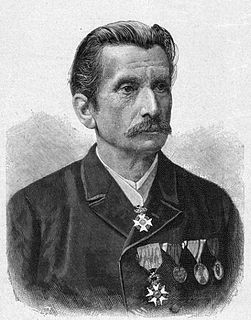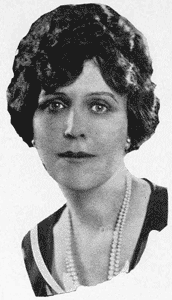A Quote by Lillian Smith
Man, born of woman, has found it a hard thing to forgive her for giving him birth. The patriarchal protest against the ancient matriarch has borne strange fruit through the years.
Related Quotes
From woman, man is born; within woman, man is conceived; to woman he is engaged and married. Woman becomes his friend; through woman, the future generations come. When his woman dies, he seeks another woman; to woman he is bound. So why call her bad? From her, kings are born. From woman, woman is born; without woman, there would be no one at all.
We are born of woman, we are conceived in the womb of woman, we are engaged and married to woman. We make friendship with woman and the lineage continued because of woman. When one woman dies, we take another one, we are bound with the world through woman. Why should we talk ill of her, who gives birth to kings? The woman is born from woman; there is none without her. Only the One True Lord is without woman
Man is the one who desires, woman the one who is desired. This is woman's entire but decisive advantage. Through man's passions, nature has given man into woman's hands, and the woman who does not know how to make him her subject, her slave, her toy, and how to betray him with a smile in the end is not wise.
There is in each of us an ancient force that takes and an ancient force that gives. A man finds little difficulty facing that place within himself where the taking force dwells, but it's almost impossible for him to see into the giving force without changing into something other than man. For a woman, the situation is reversed. ... These things are so ancient within us that they're ground into each separate cell of our bodies... It's as easy to be overwhelmed by giving as by taking.
I once picked up a woman from a garbage dump and she was burning with fever; she was in her last days and her only lament was: My son did this to me. I begged her: You must forgive your son. In a moment of madness, when he was not himself, he did a thing he regrets. Be a mother to him, forgive him. It took me a long time to make her say: I forgive my son. Just before she died in my arms, she was able to say that with a real forgiveness. She was not concerned that she was dying. The breaking of the heart was that her son did not want her. This is something you and I can understand.
Men and women are made for each other, but their mutual dependence differs in degrees; man is dependent on woman through his desires; woman is dependent on man through her desires and also through her needs; he could do without her better than she can do without him. She cannot fulfill her purpose in life without his aid, without his goodwill, without his respect.....Nature herself has decreed that woman, both for herself and her children, should be at the mercy of man s judgment.
Marie Curie is my hero. Few people have accomplished something so rare - changing science. And as hard as that is, she had to do it against the tide of the culture at the time - the prejudice against her as a foreigner, because she was born in Poland and worked in France. And the prejudice against her as a woman.
Nora leaves her husband, not-as the stupid critic would have it-because she is tired of her responsibilities or feels the need of woman's rights, but because she has come to know that for eight years she had lived with a stranger and borne him children. Can there be anything more humiliating, more degrading than a life-long proximity between two strangers? No need for the woman to know anything of the man, save his income. As to the knowledge of the woman-what is there to know except that she has a pleasing appearance?
I have one thing you don't,' he murmured against her neck, turning his head and nipping her earlobe. 'What?' His tongue teased her ear. 'Brute strength,' he whispered and removed the keys from her hand even as he captured her mouth with his. He didn't let her up until she kissed him back thoroughly, until her arms slid around his neck and she melted into him. He drove the truck with great satisfaction, smirking at her. 'Manly man, here, woman.
... True, we are often too weak to stop injustices; but the least we can do is to protest against them. True, we are too poor to eliminate hunger; but in feeding one child, we protest against hunger. True, we are too timid and powerless to take on all the guards of all the political prisons in the world; but in offering our solidarity to one prisoner we denounce all the tormentors. True, we are powerless against death; but as long as we help one man, one woman, one child live one hour longer in safety and dignity, we affirm man's [woman's] right to live.
My grandmother did not come to see me till a month after my birth. I was born seven years after my only sister and my birth was a big disappointment for her. In it there is a message that I understand very well now about the discrimination against the girl child. My uncles and other relatives are against encouraging girls. My parents are more open. They back me all the way.
As an artist, I identify with Sandro Botticelli. We know him as the man who painted Primavera and The Birth Of Venus. The goddesses and ancient subjects he chose represented virtues which were meant to inspire people. Then he went through a dark phase when he was listening to the sermons of Savonarola, who preached against the worldly pleasures of the Renaissance. But Botticelli's works live on, inspiring people to this day. Five hundred years after his death, he still has thousands of fans!





































